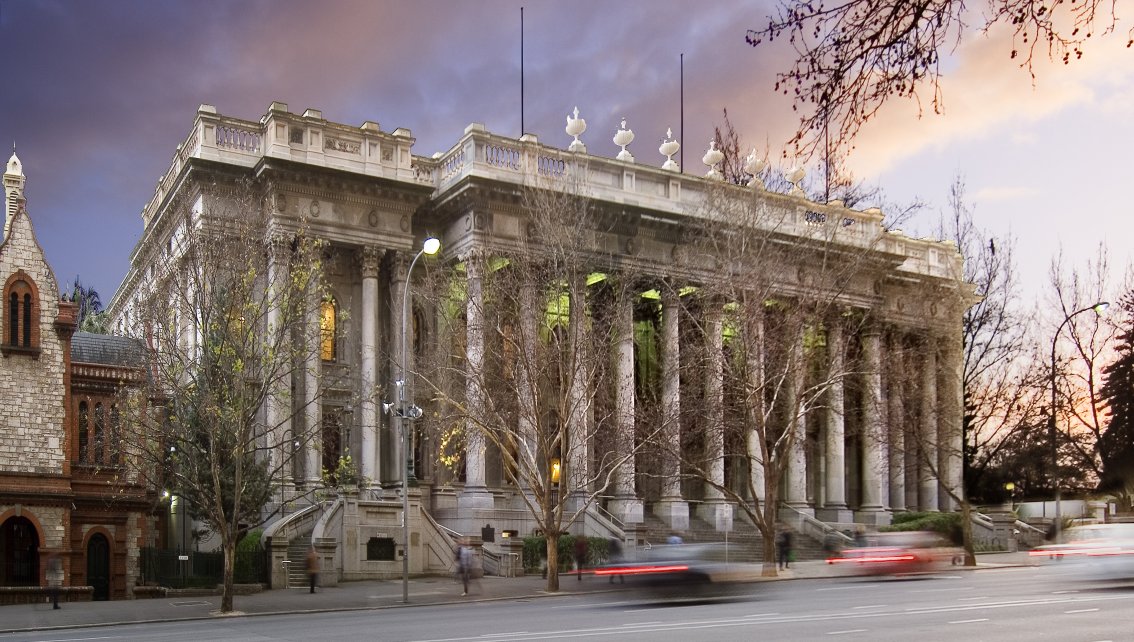

I rise today to speak on this bill and to indicate that I will not be supporting it in its current form.
Firstly, I would like to place on the record that I think it is reprehensible that anyone would be harassed in any manner in any situation let alone attempting to access a medical procedure. I believe we all have the fundamental right to go about our daily lives and decisions without abuse or threat.
We also all have the fundamental right to express a view or an opinion in a respectful manner. This is called free speech and we are all lucky to live in a country in which its foundation was built on free speech and Liberty.
This bill is regressive as it is yet another attempt to progressively dismantle the architecture around freedom of speech. Government should not be able to regulate a person’s speech just because it disapproves of their opinion or what they say. It is disingenuous to limit free speech only in relation to a particular cause as this bill seeks to do in Section 48 c (2) (b). Free speech is about the right to express one’s opinion without censorship, restraint or legal penalty. I disagree with members that claim that this legislation does not impinge on freedom of speech because it does. It regulates the format or manner of a form of expression by restricting the uses of places in which a particular protest activity may take place. That, in itself, impinges on freedom of speech.
As I reiterated previously, I do not support and fervently oppose any situation in which a protest is violent, aggressive or of a harassing nature. I can see the motivation behind this legislation, to protect people who are having to make extremely difficult decisions. However we have current rules which govern protestors of all causes. Rules which balance the rights of those inconvenienced and, more importantly, laws proscribing harassment and assault. I draw the chambers attention to the Summary Offences Act 1953 which refers to disorderly or offensive conduct or language, behaving in a disorderly or offensive manner, and then defines ‘offensive’ to include threatening, abusive or insulting. These laws already exist to protect our citizens from harassment and further laws, such as these, do nothing more than threaten to protect the value of freedom of expression.
Mr President I would also like to talk about the reality of this legislation.
In 2017 several members of the ACT community were fined for praying silently in Canberra’s CBD after the passing of legislation in the ACT preventing protests in the vicinity of an abortion clinic. During this debate in the other place some members have suggested that silent prayer in itself could not be interpreted as a prohibited behaviour in any case. It is true that this may not be the intended consequence of the bill but what we have seen occur in the ACT shows that this is the reality.
So members are aware, let me step you through the consequences of this legislation. A zone, similar to the proposed legislation today, was introduced around the Moore Street clinic in Canberra in March 2016. A group of individuals had held vigils at that Civic clinic every Friday for 18 years. After the legislation was passed the group no longer held group vigils, remained silent, did not use placards and instead prayed as individuals. Despite this, police fined three of these individuals and temporarily took another into custody for praying within the protest exclusion zone. Again, it may not be the intended consequence, but like much legislation, it is the reality.
That is why I will be moving an amendment, identical to the amendment moved in the other place by the Minister for Environment and Water, to ensure that silent prayer cannot be interpreted as prohibited behaviour. This would enable people to peacefully and silently provide prayer for individuals as they enter or leave a protected premises.
Because Mr President, there are the stories of the women who have actually, by choice, approached these so called protestors. Women who felt that their circumstances meant they had no other choice but to seek an abortion. Women that felt pressured to make a decision based on a lack of necessary support. These women, feeling empowered, have then changed their minds and have raised their child with the support of this community.
Stories such as Aashika and Suyra who came to Australia after the earthquakes in Nepal with little money and no family support. They were not aware of the support structures available in Australia. When remembering her passed journey Aashika said “I was so stressed outside the abortion clinic. My husband and I just stopped there. We husband went to talk with one of the people sitting on the side of the road. He didn’t force us to stop or listen to him. He just spoke with us about our problem, why we were choosing abortion. My husband told our story… The man, Paul, told us about the things he could help us with and we don’t have to abort our baby. He really helped us. He helped us to bring our mother out to Australia to help take care of the baby whilst I was studying and my husband was at work. He also helped us with accommodation and things.”
Another story from Sara, a young woman that walked into the café adjacent to the abortion clinic to ask for directions to the clinic. She spoke to Marguerite, the then owner of the café, and after a friendly conversation Marguerite gave her literature on pregnancy support and her mobile number. One hour later the young woman phoned Marguerite to thank her for the information and to say that she had decided to keep her baby. In 2013 Sara’s healthy baby girl was born and Marguerite continued to support Sara, providing her with needed goods for her and her baby.
Mr President, I strongly believe that silent prayer should be allowed. By explicitly allowing individuals to practice silent prayer near an abortion clinic, a woman than has the option to seek their support, such as we hear in stories. There has been lots of discussion on women’s choice and this is another example of choice. By removing these people from this area, you remove the woman’s choice to approach and engage and Mr President, I believe that the saving of one life and the provision of support for these women justifies this amendment.
Mr President I am also extremely uncomfortable with the wording of the proposed amendments to the Health Care Act. Under section 48E the proposed changes state:
“A police officer may, if the police officer reasonably suspects that a person has engaged, or is about to engage, in prohibited behaviour in a health access zone, direct the person to immediately leave the health access zone” and Mr President if he or she fails to comply they are guilty of an offense with the maximum penalty of $10,000.
There are 5 words that I am extremely uncomfortable with Mr President and they are the words “or is about to engage”. Now, I am no lawyer but even I know that there are some basic principles of criminal law and one of those is that you cannot arrest someone before they have actually committed a crime. After doing some research on the topic, Mr President, I can tell you there are five principles of criminal law which are
Legally, I’m not sure how one can satisfy oneself beyond reasonable doubt that someone is “about to engage” before they have actually engaged in prohibited behaviour. I believe there is a significant risk Mr President that, with the use of those words, members of the public could be religiously profiled and, in doing so, be forced to leave a health access zone before actually committing a crime. And Mr President this bill has been carefully crafted so that the crime is not actually committed unless the member of the public argues the point as to why they may be within the health access zone other than to protest and refuses to leave the zone. Mr President, what happens if this person is visiting a sick friend or relative in a hospital where abortions are performed? What about their right to be in that public space? And so Mr President I believe this legislation is flawed and problematic.
Mr President when working on a measure that restricts freedom of expression, we need to ask ourselves a number of important questions. Whether the measure can be justified under the permitted grounds for restriction, whether it will be effective to achieve the desired ends, whether it impinges on freedom of expression to a greater degree than is necessary and whether there are less restrictive means of achieving the desired ends. Mr President I believe this legislation is fundamentally flawed in all of these areas and I therefore cannot support it.

Subscribe and stay in touch with Nicola and the Legislative Council.
Type on the line above then press the Enter/Return key to submit a new search query.